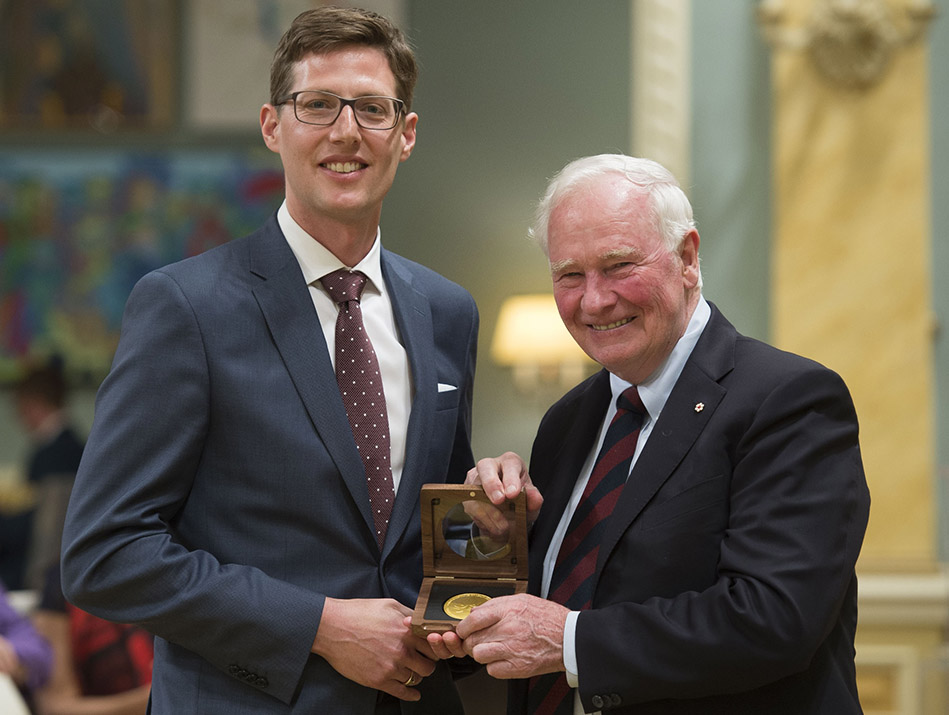Mac researcher honoured for work on obesity, diabetes

Past Governor General of Canada David Johnston presents Gregory Steinberg with the Gold Leaf Prize for Outstanding Achievements by an Early Career Investigator at a ceremony in Ottawa.
It has been a year filled with honours and awards for McMaster University researcher Gregory Steinberg.
This week Steinberg, a professor of medicine of McMaster’s Michael G. DeGroote School of Medicine, received the Diabetes Canada/Canadian Institutes of Health Research – Institute of Nutrition Metabolism and Diabetes Young Scientist Award. The award recognizes outstanding research conducted in Canada by scientists under the age of 45 in the field of diabetes.
The recognition comes on the heels of the Endocrine Society’s 2018 Laureate Awards announcement in September, at which time Steinberg was named the recipient of the Richard E. Weitzman Outstanding Early Career Investigator Award. This annual award recognizes an exceptionally promising young clinical or basic investigator in the field of endocrinology.
“It’s been a tremendous honour for me to receive these national and international awards that are a reflection of the great fortune I have had in working with tremendous mentors, collaborators and trainees over my scientific career,” said Steinberg. “Without their vital contributions, none of these accolades would be possible.”
In May, Steinberg’s work was honoured with the international 2017 Outstanding Scientific Achievement Award from the American Diabetes Association. He was the first scientist from a Canadian university to take the 60-year-old award given annually to a scientist under 50 years of age.
The month prior, Steinberg was selected as the sole Canadian scientist to be awarded the new Gold Leaf Prize for Outstanding Achievements by an Early Career Investigator by the Canadian Institutes of Health Research.
Steinberg, 41, is also a professor of biochemistry and biomedical sciences at McMaster. He holds a Canada Research Chair in Metabolism and Obesity and the J. Bruce Duncan Chair in Metabolic Diseases. He is also a co-director of the Metabolism and Childhood Obesity Research Program (MAC-Obesity) at McMaster.
Over the last decade his research has answered fundamental questions into how cellular energy sensors control the body’s metabolism of fat and sugar; findings which are leading to new therapeutic strategies for the prevention and treatment of the interrelated chronic diseases of obesity, type 2 diabetes, cardiovascular disease and non-alcoholic fatty liver disease.
